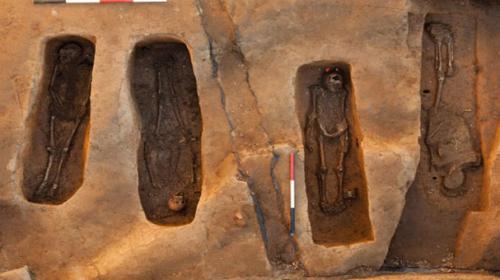Bones of early English settlers in Virginia identified
July 29, 2015

It took years for scientists to identify the poorly preserved bones belonging to an Anglican priest and three military officials.
They were found in what is believed to be the oldest Protestant church in the modern-day United States. It was open from 1608.
Jamestown is where Britain´s world-changing empire began.
"It´s a major discovery. These are the earliest English leaders to be discovered in America," Jamestown Rediscovery director Jim Horn told AFP.
At a briefing, he told reporters: "After being lost to history for more than 400 years, their discovery reveals new clues about life, death and the importance of religion in one of England´s most critical settlements."
The people whose remains were found ranged in age from 24-39. They were part of the imported elite at the ill-fated settlement south of Washington, the current US capital city.
New technologies have made it possible to connect the remains with historical records and make identification a real possibility. In this case, it was success times four.
Only about 30 percent of each skeleton was recovered.
Reverend Robert Hunt, the colony´s first Anglican priest, and Captain Gabriel Archer, were part of the first settlement campaign in 1607.
It was led by Captain John Smith, who was helped by Pocahontas, a daughter of the local indigenous chief -- made famous by the Disney epic.
Beside them were Sir Ferdinando Wainman, thought to be the first of England´s elite to be buried in the Americas, and Captain William West.
West was killed in a battle with the local Powhatan indigenous tribe.
About a third of their remains had not decomposed, the scientists said, adding that their burial near the church choir indicated their high social status.
"Going to a colony in the new world for any European was a very risky business, very dangerous," Horn said.
"Starvation, Indian attack and disease were the three major killers for these men. And this is not unusual that none of them would go beyond forty." (AFP)











